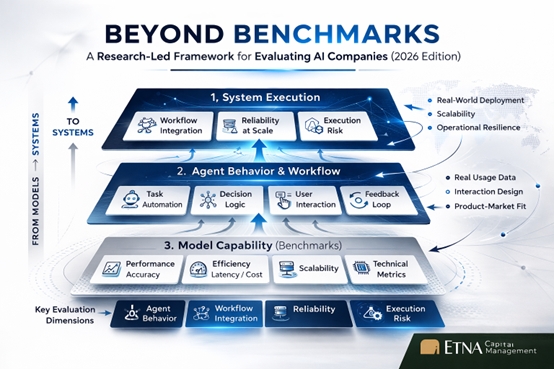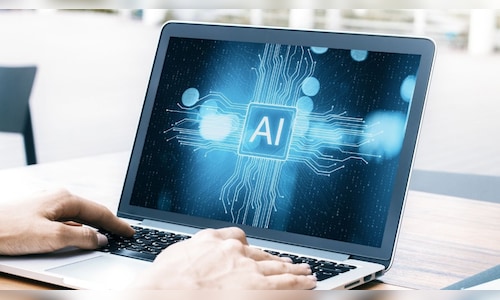
AI’s encroachment into the employment landscape is becoming increasingly apparent with every passing day. In the latest turn of events, Vercel announced that it has replaced its sales team with an AI agent after training it on how its best employees operate. According to reports, Vercel’s AI agent platform has been developed to new standards of operation, replacing a 10-person sales team with just a single employee and an AI bot. The displaced employees have not been fired, only redirected to more hands-on work, showcasing the growing role of AI in the automation of repetitive tasks.
While the update is a matter of pride for the business, which has discovered how to automate its operations one step further, employees are caught in the struggle of training their replacements to perform their roles. The AI race has presented us with many novel advancements, but its role in redefining tasks regularly brings up concerning questions regarding the future of work.

Vercel’s replacement of its sales team with an AI agent trained on its best-performing employee shows us the future of automation of entry-level jobs.
(Image: Pexels)
Vercel Replaces Its Sales Team, Narrowing Down to One Employee and an Advanced AI Agent
Vercel, a $9.3 billion cloud-based platform that provides customers with developer tools and infrastructure to build and scale web applications, isn’t just changing how it operates: it is also set to provide customers with the tools to level up their operations as well. To that end, the company’s experiments with AI don’t just promise boosts to its own profit margins, but to those of its customers as well.
Keeping with the trends across the tech world, Vercel has been keen to develop its own army of AI agents to deploy across the services it can offer its customers. Instead of relying on abstract promises to showcase the capability of these AI agents, Vercel showcased the cuts in its own sales team as a way to boost public confidence in its abilities.
In its most recent update, Vercel’s AI bot was used to replace its sales team, which previously boasted a 10-person fleet of sales development representatives (SDRs). The sales team managed all the inbound queries from potential customers and oversaw interactions with interested clientele. Now Vercel’s experimental AI team is managed by a single employee and an AI agent that claims to do it all.
How Was Vercel’s Sales Automation Strategy Put Into Action?
The strategy behind the design of the AI agents was straightforward. “If you can document a workflow, it’s now pretty straightforward to have an agent do it,” Jeanne DeWitt Grosser, Vercel’s Chief Operating Officer, told Business Insider. Under Grosser, Vercel brought in three engineers to shadow its top sales performer. They observe and record the employees’ tasks and methods, their areas of focus, and how they conduct their operations overall.
The findings, gathered over six weeks, became the basis of Vercel’s AI experiment team, providing the developers with the basic tasks, methods, and solutions that fell under the purview of the sales team. According to sources, Vercel’s AI agent in the sales team can now conduct all the essential tasks previously performed by the workers, from reviewing messages and filtering out spam to replying to customers and escalating matters to the support team.
The AI agent isn’t entirely unsupervised. It drafts and uploads its responses for review by a manager, who then updates the responses, thereby training it one step further. We’re witnessing a wondrous world of automation, and Vercel appears determined to lead it.
Vercel’s Success with Sales Automation Opens up New Possibilities for AI
Vercel’s AI agent in the sales team isn’t entirely independent. The tool is still managed by an employee and likely doesn’t output perfect responses 100% of the time. That said, it is certainly advanced and manages to automate tasks that can be tedious and repetitive for employees. On the positive side, as Vercel replaces its sales team with the AI agent, it hasn’t entirely cut the affected roles, freeing up nine employees to focus on outbound sales prospects.
While many businesses have agreed that AI tools will simplify routine work and free employees to focus on more creative endeavors, they have also simultaneously laid off employees in droves, making them more fearful of the technology rather than curious about it.
The reduced need for human labor is expected to be an inevitable consequence of the automation of work, however, businesses that invest in identifying areas where the technology can be applied within their operations are likely to have an easier time deploying it.
Customers Remain Apprehensive About Interacting With AI
Vercel’s planned and focused enforcement of its AI agent shows that a studied deployment can be beneficial for a business, however, we still have to understand how customers respond to this investment. Many customers have expressed a dislike for AI agents and a preference for an empathetic human ear on the other end of the line, and surveys have similarly corroborated that claim.
In response to Vercel’s automation of entry-level work, a user on Reddit explained, “Gonna be honest, if I’m shopping for a product, and get an email from or sales pitch from obvious AI, I’m not going to touch that company with a 10-foot pole. If they’re not going to invest in their sales team, there’s zero chance they’re going to invest in customer support.”
With Vercel’s sales automation strategy, the final touch in the communication is still overseen by a manager, which may just be key to the successful utilization of AI in customer-facing roles. As we tread deeper into the era of artificial intelligence, there are many aspects of relying on AI agents that will require further exploration, from the experience of employees to those of the customers waiting on the other side of the desks.
As Vercel replaces the sales team with a single human and a bot, we are faced with additional questions about the need for, and viability of, AI tools. Share your thoughts on these changes with us in the comments. Subscribe to The HR Digest for more insights on workplace trends, layoffs, and what to expect with the advent of AI.







